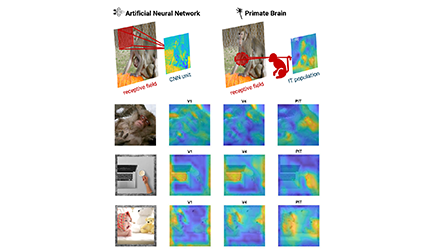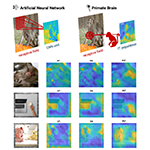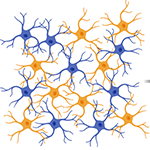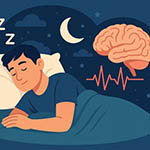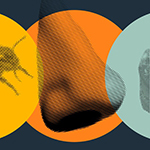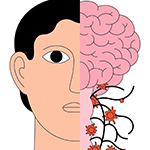Featured Story:
When Neurons Discover on Their Own
June 30, 2025
How does the brain really see? In a new study, Victoria Zhanqi Zhang and the Ponce Lab reveal that neurons across the primate visual cortex are tuned not just to objects, but to animal features—highlighting a surprising bias in how the brain encodes natural scenes. Their findings shed light on the fundamental principles of visual representation.
Community Stories
June 30, 2025
How does the brain really see? In a new study, Victoria Zhanqi Zhang and the Ponce Lab reveal that neurons across the primate visual cortex are tuned not just to objects, but to animal features—highlighting a surprising bias in how the brain encodes natural scenes. Their findings shed light on the fundamental principles of visual representation.
Original article in: Science Advances >
June 16, 2025
It was long thought that only neurons in the outermost regions of the brain, called the cortex, could adapt and change their properties in response to visual experience. Takuma Sonoda and Chinfei Chen share new findings revealing that the visual thalamus, a structure in the center of the brain, at an earlier stage in the visual pathway than the cortex, can also change based on what animals see. Their discovery expands our understanding of how sensory systems learn and adapt.
Original article in: Cell >
May 21, 2025
For many years, researchers have debated whether language in humans emerged through the evolution of gestural communication or vocal communication. Erin Hecht shares new data from chimpanzee research supporting a model where both modalities together contributed.
Original article in: Nature Communications >
May 14, 2025
Cagri Yuksel describes new research revealing that REM sleep and vagal nerve activity may play a crucial role in how the brain recovers from fear. These findings could open the door to innovative therapies for PTSD and related conditions.
Original article in: Psychological Medicine >
In the News
July 10, 2025
Climate change is altering the Earth’s smells and how we perceive them. Experts gathered at Radcliffe to explore—and try to remedy—this sensory deficit.
July 10, 2025
Scientists are making surprising discoveries about the connections between cancer and the nervous system. Harvard Medicine Magazine profiles the research of William Hwang, Richard Wong, and Humsa Venkatesh.
July 10, 2025
The Harvard Gazette interviews Julian De Freitas about a new study he co-authored on the mental health risks of wellness apps. This research suggests that regulators take a closer look these apps as their popularity rises amid the ongoing national epidemic of loneliness and isolation.
Awards & Honors
June 18, 2025
Round up of awards and honors earned by the HBI community.
May 20, 2025
Congratulations to Joshua Sanes, the John C. Tarr Professor of Molecular and Cellular Biology and former HBI Co-Director, on being been named a Fellow of the British Royal Society!

